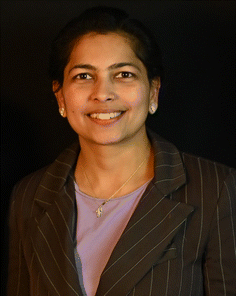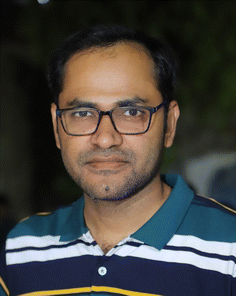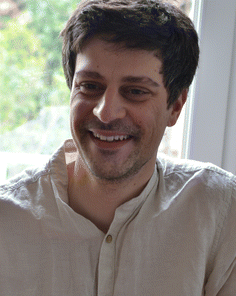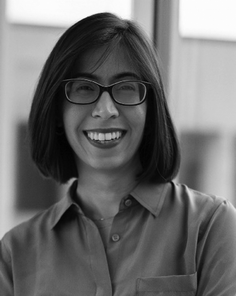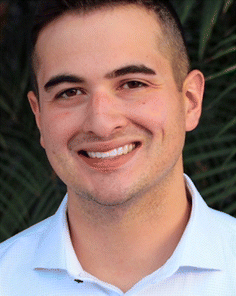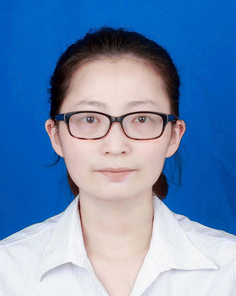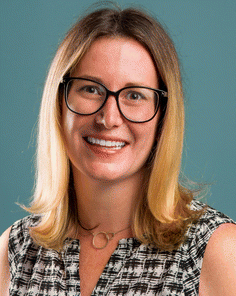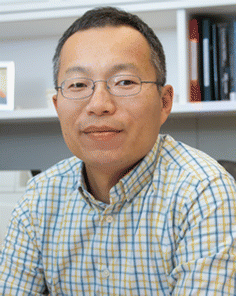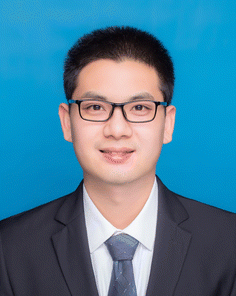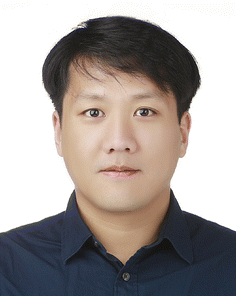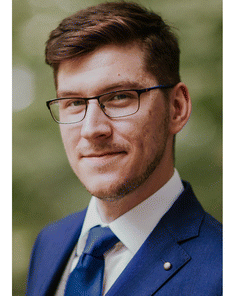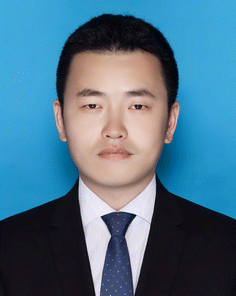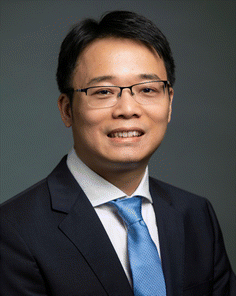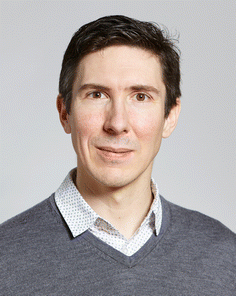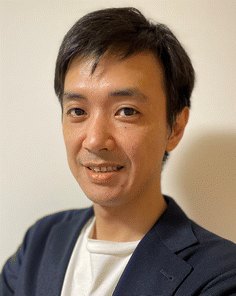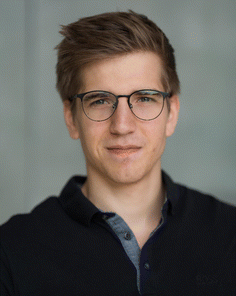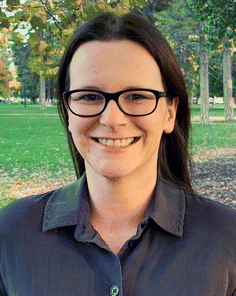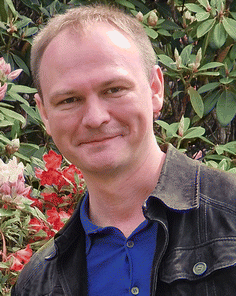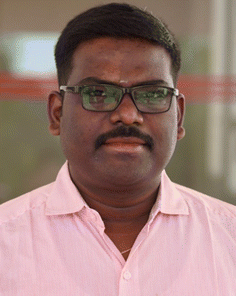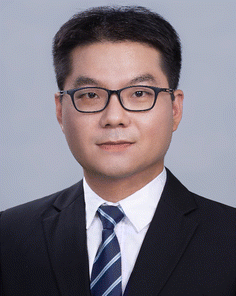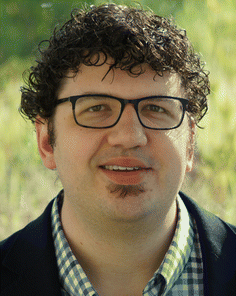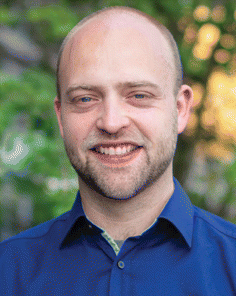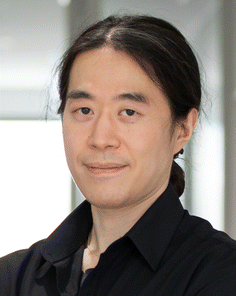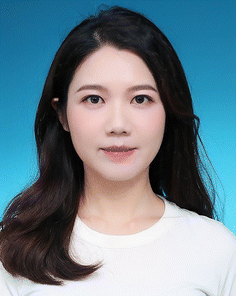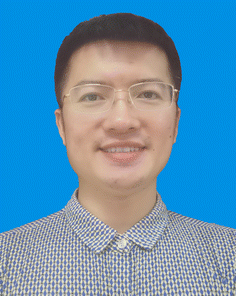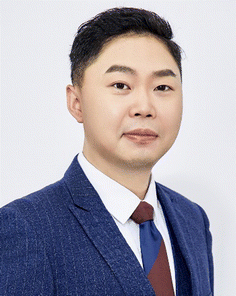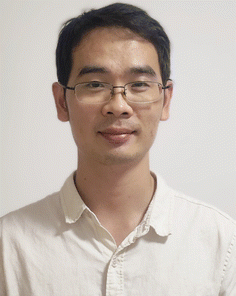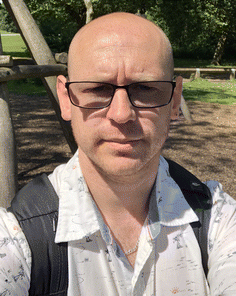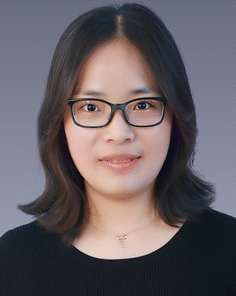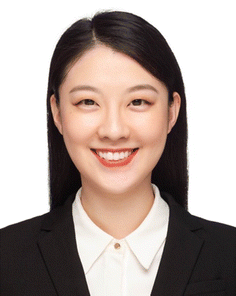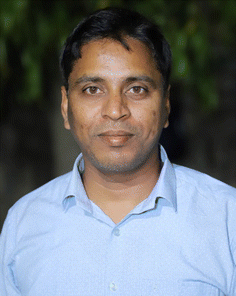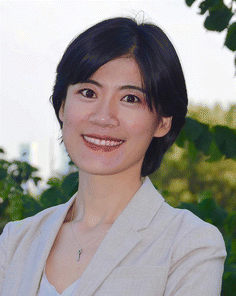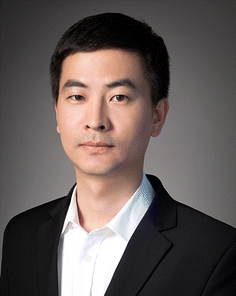DOI:
10.1039/D3CC90320F
(Profile)
Chem. Commun., 2023,
59, 12368-12375
Contributors to the Emerging Investigators collection 2023: Part 1
Garima Agrawal is currently an assistant professor in the school of chemical sciences at the Indian Institute of Technology (IIT) Mandi, India. After completion of her PhD at RWTH Aachen University, Germany in 2015, she worked as a postdoctoral researcher at the University of Ghent Belgium and later as a DST Inspire faculty at IIT Roorkee. She is a recipient of both the NASI-Young Scientist Platinum Jubilee Award-2022 and DST Inspire Faculty Award-2016. In 2009, she was also selected for the international DAAD academic exchange program. Her research interests are in the field of functional polymers, nanomaterials, and biomaterials. She can be found on Twitter at https://twitter.com/FunPolyNanoLab.
Biswarup Chakraborty joined the Department of Chemistry, Indian Institute of Technology Delhi, India in 2020 and his research group works on design of inorganic material for photo(electro)catalysis focusing on identification of reactive species and elucidation of the reaction pathway. He received an MSc in Chemical Sciences in 2009 from the Indian Association for the Cultivation of Science, Kolkata (India). From the same institute, he obtained his PhD in Chemistry in 2014 under the mentorship of Prof. Tapan Kanti Paine. He then moved to Ben-Gurion University of the Negev, Israel for a postdoc with Prof. Ira A. Weinstock. Before joining IIT Delhi, he spent over a year in Prof. Matthias Driess's group at the Technical University of Berlin, Germany.
Cédric Colomban is a CNRS researcher at the institute of molecular sciences of Marseille, France (iSm2). He completed his PhD studies on bioinspired catalysis in 2014, at the IRCELYON institute (University of Lyon, France), under the guidance of Drs A. Sorokin and P. Afanasiev. He undertook his 1st postdoc with Profs. M. Costas and X. Ribas at the University of Girona, Spain (2015–17), on self-assembled cages and dynamic host–guest interactions. After a second postdoc (2018–19) on organic cages with Prof. A. Martinez (iSm2, France), he started in 2020 the Bioinspired Confined Catalysis group. His group focuses on caged bioinspired complexes.
Sheel Dodani is currently an Associate Professor of Chemistry and Biochemistry at The University of Texas at Dallas. She carried out her graduate studies at the University of California, Berkeley under the supervision of Professor Christopher Chang. After completing her PhD in 2013, she joined the laboratory of Professor Frances Arnold at the California Institute of Technology as an NIH postdoctoral fellow. Since starting her independent career in 2016, Sheel has developed an integrated approach spanning chemical biology, protein engineering, and supramolecular chemistry to investigate the roles of anions in biology.
Marcus Drover is an Assistant Professor at Western University in London (Canada). He received a BSc from Memorial University (2012), a PhD from the University of British Columbia with Laurel Schafer and Jennifer Love (2016) and performed postdoctoral work at Caltech with Jonas Peters (2017–2019). Drover was recipient of a Vanier scholarship (2013–2016), Michael Smith Supplement (Oxford with Andrew Weller), Banting and Resnick Postdoctoral Fellowships (2017–2019), and the Polanyi Prize in Chemistry (2020). Drover's research interests encompass main group and coordination chemistry; he is member of the Editorial Board of
Organometallics and has contributed to >50 articles.
Jianxiao Gong obtained her PhD degree in 2013 from the National Center for Nanoscience and Technology (NCNST). After this, she went to the University of Maryland, College Park and University of Illinois at Urbana–Champaign for her postdoctoral research. In 2020, she joined the National Center for Nanoscience and Technology (NCNST) in China and took up a full professor position. Her current research interests focus on the self-assembly of nanocrystals into superlattice structures and their novel optical and electric properties for sensing applications.
Ashlee J. Howarth is an Associate Professor and Concordia University Research Chair at Concordia University in Montréal. She obtained her undergraduate degree from the University of Western Ontario in 2009, and then went on to do her PhD at the University of British Columbia under the supervision of Michael O. Wolf. Before joining the faculty at Concordia, she completed an NSERC Postdoctoral Fellowship at Northwestern University with Joseph T. Hupp and Omar K. Farha. At Concordia, the Howarth group is focused on the design and synthesis of rare-earth cluster-based metal–organic frameworks targeting applications ranging from catalysis to chemical sensing.
Jimmy Jiang is currently an Associate Professor in the Department of Chemistry at the University of Cincinnati. Dr Jiang earned his BS from Jiangnan University in 2007 and MS from East China University of Science and Technology in 2010. He obtained his PhD from North Carolina State University (advisor: Jonathan Lindsey) working on tetrapyrrole compounds for energy applications. In 2015, he joined Yale University as a Postdoctoral Associate and then an Associate Research Scientist at Yale Energy Sciences Institute, working with Professors Gary Brudvig and Robert Crabtree on organometallic materials. His current research focuses on electrocatalysis and electrochemical energy storage.
Xingchen Jiao received his PhD in Inorganic Chemistry from the University of Science and Technology of China (2019). He currently works as a professor at the Jiangnan University. His current interests include the synthesis and characterization of nanostructures, especially two-dimensional materials, as well as their applications in CO
2 photo-/electro-conversion and plastic-conversion into valuable chemicals. He has won some important awards such as the Excellent Doctoral Dissertation of the Chinese Academy of Sciences (2021) and the President Scholarship Award of the Chinese Academy of Sciences (2019).
Kyoungsuk Jin is an assistant professor in the Department of Chemistry at Korea University. He received his PhD degree (2016) in Material Science from Seoul National University. His postdoctoral research at the Massachusetts Institute of Technology (MIT) primarily involved the study of electrochemical oxygen functionalization reactions. In 2020, he embarked on his independent career by joining the Department of Chemistry at Korea University. His research revolves around gaining a profound comprehension of electrochemical reactions and organic electrosynthesis. His expertise encompasses diverse areas such as various oxygen-atom functionalization catalysis, asymmetric synthesis, and biochemical reactions.
Artur Kasprzak obtained his PhD in chemistry from the Faculty of Chemistry, Warsaw University of Technology (Poland). Currently, he is an assistant professor at the Department of Organic Chemistry therein, and a member of the Biofunctional Materials Group as well as the leader of its subgroup: Functional Organic Compounds Group. His research interests include the synthesis and applications of functional organic compounds, especially polyaromatic derivatives, and are mainly related to the development of novel organic receptors toward the detection of environmentally important chemical species. His research interests also include nanotechnology, materials science, and medicinal chemistry. See website: http://zcho.ch.pw.edu.pl/skl_kas.html.
Shuanglong Lu received his BS and PhD degrees from Soochow University in 2013 and 2018 respectively under the supervision of Prof. Hongwei Gu. Meanwhile, he got financial support from the Chinese government to finish his joint PhD research at the University of Colorado at Boulder, USA, in Prof. Wei Zhang's group. He then joined Jiangnan University, China, as an associate professor in 2018. His current research interests mainly focus on engineering nanoporous materials including nanoporous metals/metal oxides and nanoporous organic frameworks, and their functional applications in energy and environment related adsorption and catalysis.
Chao Luo is an Assistant Professor in the Department of Chemistry and Biochemistry at the George Mason University. He received his bachelor's degree from the Wuhan University in 2008. Then, he entered the Technical Institute of Chemistry and Physics, Chinese Academy of Sciences and received his master's degree in 2011. After that, he obtained a PhD at the University of Maryland, College Park in 2015 and worked as a postdoc at the University of Maryland, College Park from 2016 to 2019. His research interests focus on developing new materials and new chemistries for affordable, lightweight, and sustainable energy storage devices.
Victor Mougel is currently a tenure-track assistant professor of Inorganic Chemistry at ETH Zürich. His academic journey began at the ENS of Lyon, where he received BSc and MSc degrees, before pursuing his doctoral studies at the University of Grenoble with Prof. Marinella Mazzanti. He then joined ETH Zürich as an ETH Fellow, in the group of Prof. Christophe Copéret. In 2016, he started his independent career as a CNRS researcher at Collège de France in Paris, before returning to ETH Zürich in December 2018. Currently, his research focuses on the electrochemical activation of small molecules, drawing inspiration from enzymatic systems.
Kei Muto is an associate professor at Waseda University. He received his PhD in 2015 from Nagoya University under the supervision of Prof. Kenichiro Itami. After his postdoctoral work at ITbM in Nagoya University, he moved to Waseda University in 2016 as an assistant professor in the group of Prof. Junichiro Yamaguchi. In 2022, he was promoted to be an associate professor at Waseda University. His current research focuses on the development of dearomative transformation and reagents to gain molecular complexity, and the total synthesis of natural products.
Alex J. Plajer studied chemistry at the University of Heidelberg (BSc 2015) and the University of Cambridge (MPhil 2016). As a Cambridge Trust Vice Chancellor scholar, he studied synthetic inorganic chemistry under the supervision of Dominic Wright and received his PhD in 2020. After a short research fellowship supported by the Royal Commission for the Exhibition of 1851 at the University of Oxford, he started his independent career at Freie University Berlin in the fall of 2021. His work is concerned with the development of catalytic methodologies for the synthesis of heteroatom-containing polymers and is supported by a Liebig fellowship.
Jolene Reid was born in Ballymena, County Antrim, Northern Ireland. She received a MSci from Queens University Belfast and a PhD from the University of Cambridge working with Professor Jonathan Goodman. She was a Marie Curie research fellow in Professor Matthew Sigman's group at the University of Utah. In 2020, she joined the faculty of the University of British Columbia as an assistant professor. Here, her research program combines computational and experimental chemistry techniques for the development of selective organic reactions and catalysts.
Alexander Romanov is a Royal Society University Research Fellow at the University of Manchester, working in the Organic Materials Innovation Centre. He obtained his PhD in 2011 from the A. N. Nesmeyanov Institute of Organoelement Compounds under the supervision of Professor Alexander Kudinov. He worked as a senior postdoctoral research associate with Prof Manfred Bochmann (University of East Anglia) from 2014 to 2018, investigating the carbene coinage metal complexes and their electronic properties. In 2019, he started an independent research career focused on discovering advanced energy materials and their optoelectronic applications in light-emitting diodes, photovoltaics, sensors, security and stimuli-responsive materials.
Sankarasekaran Shanmugaraju is an associate professor of Chemistry at the Indian Institute of Technology Palakkad (IITPKD), Kerala, India. He received his PhD degree in 2013 with a gold medal for the best PhD thesis in Inorganic Chemistry from the Indian Institute of Science (IISc), Bengaluru. He then moved to Trinity College Dublin, Ireland as an Irish Research Council (IRC) postdoctoral fellow. In October 2018, he commenced his independent position as an assistant professor of Chemistry at IITPKD. The main objective of his group's current research activities is the rational design and synthesis of novel structures, smart materials, and functional porous polymers for applications in sustainable energy, environment, and biomedicine.
Chao Shu is a full professor at the National Key Laboratory of Green Pesticide and College of Chemistry, Central China Normal University (CCNU). Chao Shu obtained his PhD from Xiamen University, under the guidance of Professor Long-wu Ye in 2017. After postdoctoral studies with Professor Aggarwal at the University of Bristol in the United Kingdom, he was appointed as a full professor and started his independent career at Central China Normal University in 2021. His group’s interests include the development of new methods and strategies for the synthesis of organic chemicals, utilizing transition metal, photoredox and metallaphotoredox catalysis, and their use in resource-based heterocycles’ synthesis.
John Swierk received degrees in Chemistry and Materials Science and Engineering from the University of Pennsylvania and a PhD in Chemistry from the Pennsylvania State University in 2014. He then completed a postdoc at the Joint Center for Artificial Photosynthesis working with T. Don Tilley. After a second postdoc at Yale University with Charlie Schmuttenmaer, he was appointed as an Associate Research Scientist with the Yale Energy Sciences Institute. In 2018, he joined Binghamton University (SUNY) as an assistant professor, focusing on radical reactions initiated by photo- and electrochemical methods with diverse applications.
Peter ‘t Hart is a group leader at the Max Planck Institute of Molecular Physiology in Dortmund. His group develops inhibitors of RNA-binding proteins which act as drivers in cancer. These proteins regulate essential cellular processes such as mRNA processing and epigenetic gene regulation but have limited “drugability”. To overcome this limitation the group develops macrocyclic peptide inhibitors
via structure-based design approaches or by screening genetically encoded libraries in combination with a novel protein–RNA interaction reporter assay. For further optimization of the identified inhibitor peptides, his group also develops synthetic peptide modification methods using a late-stage modification approach.
Keisuke Takahashi is a full professor in the Department of Chemistry at Hokkaido University in Japan. He has earned a BS in Materials Science and Engineering at the University of Arizona USA, followed by MS at Chalmers University of Technology, Sweden and PhD at Hokkaido University, Japan. His research interests are focused on designing catalysts and materials
via materials and catalysts informatics. Particularly, he integrates experiment, computation, theory and data science to conduct research. He is also the principal investigator for the Catalyst Informatics project as funded by JST-CREST where he conducts research in materials and catalyst informatics.
Huan Wang, assistant professor, College of Chemistry and Molecular Engineering; adjunct faculty member, National Biomedical Imaging Center, Peking University. She obtained her BS degree in Chemistry from Beijing Normal University and her PhD degree in Chemistry from the University of Arizona under the guidance of Prof. Jeanne E. Pemberton, where she studied the dynamics of polymer surfaces under flow. She then moved to Korea and did postdoctoral work with Prof. Steve Granick, where she started to employ liquid-phase electron microscopy for single molecule studies and advanced spectroscopic methods for active diffusion problems in chemical reactions.
Songcan Wang is currently a professor at the Institute of Flexible Electronics (IFE), Northwestern Polytechnical University (NPU), China. He received his BEng (2011) and MEng (2014) from Central South University (CSU), China, and PhD degree from the University of Queensland (UQ), Australia in 2018. Before joining NPU, he worked as a postdoctoral research fellow in Professor Lianzhou Wang's group at UQ for about 1.5 years. His research interests focus on the synthesis of semiconductor nanomaterials for solar energy conversion and storage, including photoelectrochemical cells, photocatalysis, and rechargeable batteries.
Yang Wang obtained his bachelor and MS degrees from Northwestern Polytechnical University and University of Chinese Academy of Sciences, in 2010 and 2013, respectively. He moved to the Tokyo Institute of Technology and earned his Master and PhD degrees under the supervision of Prof. Tsuyoshi Michinobu in 2017. He then moved to RIKEN in 2019, working as a JSPS Fellow with Prof. Kazuo Takimiya. Since 2020, he has been working at Fudan University as an Associate Professor. His research focuses on the design and synthesis of organic/polymer semiconductors for organic thin film transistors, all-polymer solar cells, organic thermoelectric devices and some other optoelectronic and bioelectronics applications.
Qunhong Weng is a full professor in materials at Hunan University. He received his PhD degree from the University of Tsukuba with Prof. Dmitri Golberg, and worked as a postdoctoral researcher at the National Institute for Materials Science (NIMS) with Prof. Yoshio Bando and as an Alexander von Humboldt Fellow at Leibniz IFW Dresden with Prof. Oliver G. Schmidt. In 2018, he joined Hunan University as an independent principal investigator. His research focuses on functional nanomaterials made of light B, C, N, and O atoms for biomedical applications, including drug delivery, bioimaging and implantable devices.
Darren Willcox is a lecturer in inorganic chemistry at the University of Manchester, UK. He obtained his PhD in chemistry from the University of Nottingham in 2014 with Prof. Simon Woodward. Upon completion of his PhD, he moved to the University of Cambridge as a post-doctoral fellow under the supervision of Prof. Matthew Gaunt, followed by a second post-doctoral position in 2019 at Cardiff University with Prof. Rebecca Melen. In 2019 Darren started his independent position at the University of Manchester, where his group focuses on 3d metal complexes containing Z-type ligands for catalysis.
Li Wu received her PhD degree in inorganic chemistry from the Changchun Institute of Applied Chemistry Chinese Academy of Sciences in 2015 under the direction of Professor Xiaogang Qu. She then joined Professor Daniel T. Chiu's research group at the University of Washington (Seattle) as a postdoctoral researcher in 2015. She is now a full professor of the School of Public Health, Nantong University from 2019. Her current research interests focus on the development of new technology for biological and medical testing, the accurate diagnosis and treatment of tumors using functional materials,
etc.
Tong Wu received her PhD in Biomaterials Science from Donghua University in 2018 with Prof. Xiumei Mo. She worked in Prof. Younan Xia's group at the Georgia Institute of Technology from 2016 as a jointly-supervised PhD candidate and then as a postdoctoral fellow until the end of 2019. She is now working as a professor at Qingdao Medical College, Qingdao University. She has obtained Young Elite Scientists Sponsorship Program by the China Association for Science and Technology and Taishan Scholars Project of Shandong Province. Her research interests include the development of novel nanomaterials for biomedical, environmental and energy-related applications.
M. Ramu Yadav earned his Master's in Chemistry from Kakatiya University in 2008, followed by a PhD degree in 2014 at the School of Chemistry, University of Hyderabad under the guidance of Prof. Akhila K. Sahoo. He then pursued post-doctoral research at Kyoto University with Prof. Yoshiaki Nakao and later at The University of Kansas with Prof. Ryan Altman. Since 2019, he has been leading independent research at IIT-Delhi, focusing on developing enantioselective reactions by artificial metalloenzyme catalysis and novel fluorination reactions.
Yaping Zang received her PhD in 2016 from Institute of Chemistry, Chinese Academy of Sciences (ICCAS), working under the guidance of Prof. Daoben Zhu and Prof. Chong-an Di. From 2016 to 2019, she worked as a postdoc research scientist in Prof. Latha Venkataraman's group at the Department of Applied Physics of Columbia University. Since 2019, she has been with ICCAS as a professor. Her main research interests are molecular electronics and chemistry.
Liang Zhang is a professor in the Institute of Functional Nano & Soft Materials (FUNSOM) of Soochow University. He received his PhD degree in application of synchrotron radiation from University of Science and Technology of China and then stayed at the University of Erlangen-Nuremberg and the Advanced Light Source of Lawrence Berkeley National Laboratory as a postdoc fellow. His research mainly focuses on the development of
in situ/
operando synchrotron radiation-based spectroscopy methods and their applications in energy storage materials. He has published more than 140 papers in the journals of
Science,
Adv. Mater.,
Angew. Chem., Int. Ed.,
CCS Chem.,
etc.
|
| This journal is © The Royal Society of Chemistry 2023 |
Click here to see how this site uses Cookies. View our privacy policy here. 
